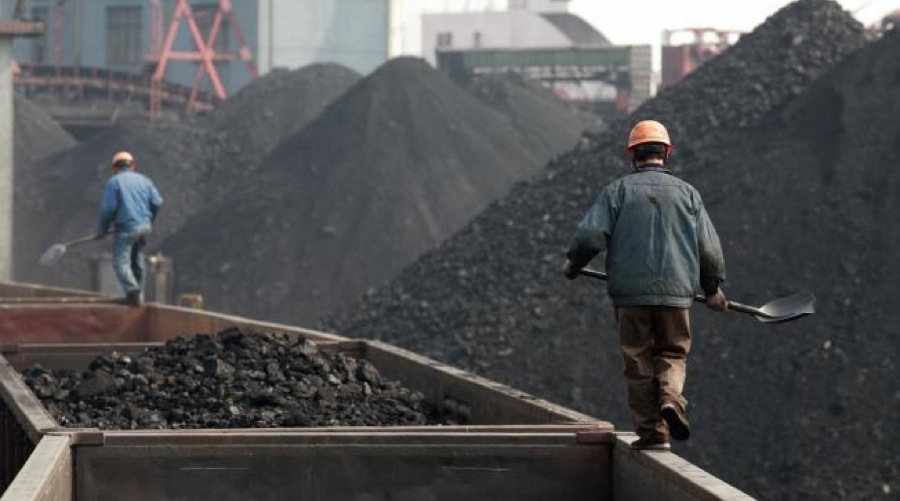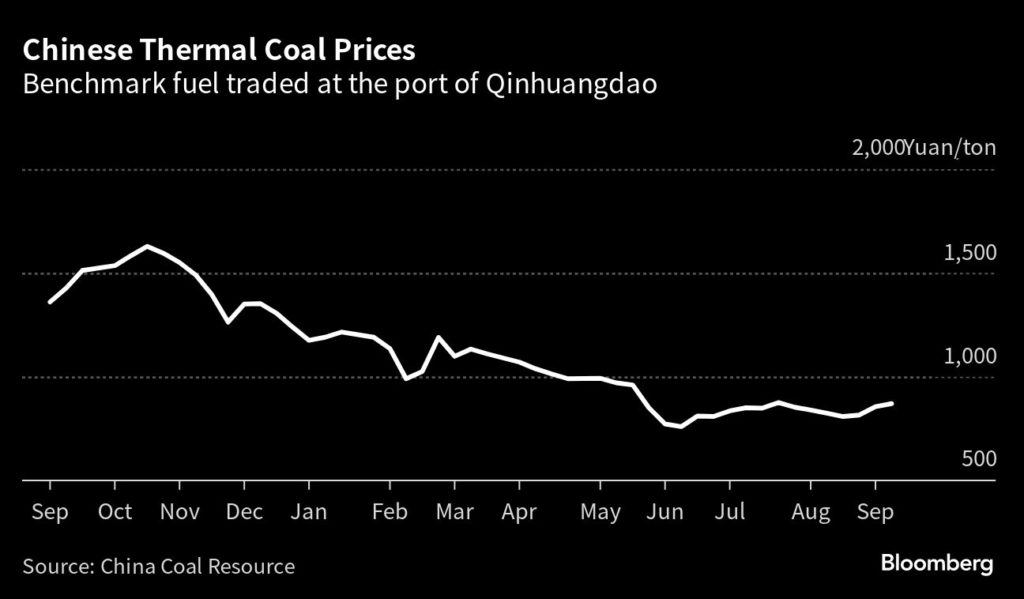China conjures a glut of coal as record imports swell supply

This time last year, Chinese coal prices were soaring as power plants scrambled for supplies after an historic drought caused hydropower output to collapse.
The market for China’s mainstay fuel today is far more sedate. Although prices have crept higher in recent weeks, record imports and the impact of a fragile economy on consumption are likely to cap costs heading into the next period of peak demand over the winter. But that’s not to say pressure points on supply won’t emerge.

The lessons learned from the drought have framed the market’s trajectory over the past year. Fearful that its exit from Covid Zero would cause demand to surge, Beijing pushed miners and importers to ensure supplies were more than sufficient to cope. That allowed China to avoid the power outages that have crippled the economy in recent years, particularly over the scorching summer period when demand for air-conditioning spikes.
The market now looks relatively oversupplied heading into the colder months. Another year of record domestic production beckons, foreign coal is pouring into China’s ports and hydro’s contribution to power generation is recovering. While the economy seems to have stabilized after a rocky spell and utilities are using more fuel, there are few signs that the usual revival in industrial demand over the autumn will create much difficulty for suppliers.
Both Daiwa Capital Markets and Morgan Stanley have pointed to weak consumption as limiting any further increases in price, according to notes from analysts this week.
Weather risk
Of course, another extreme weather event, which are becoming increasingly frequent as the planet heats up, could rip up market forecasts. And there are other threats bubbling under that may affect supply.
For one, China’s pell-mell rush to secure enough domestic fuel is affecting quality, so that more coal is needed to generate the same amount of heat. “Considering current domestic coal mining measures, a decline in coal quality becomes inevitable as the mines gradually deplete,” BRS Shipbrokers said in a recent newsletter.
Fatal accidents also continue to blight the industry. The latest disaster in Shaanxi province last month, which killed 11, has prompted another round of stricter regulations on miners that could show up in August’s output figures due on Friday.
China has responded to its quality problem by ramping up imports, particularly of higher grades, to record levels. Total shipments over the year to date topped 300 million tons in August and are running at nearly double last year’s pace. But higher natural gas prices could raise international prices for coal, while a weaker yuan may also cap China’s appetite for foreign supplies going forward, Citigroup Inc. said in a note this week.
More News
{{ commodity.name }}
{{ post.title }}
{{ post.date }}




Comments